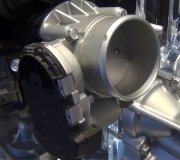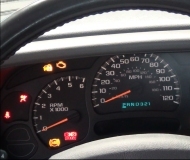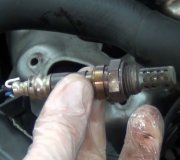Thursday, February 15th, 2024 AT 3:55 PM
Hi, we currently have a 2014 Nissan Versa SV with about 100,000 miles on it, we have had it since it was 3 years old and 7,000 miles and all those years we have been doing 3 month or 3,000 mile synthetic oil changes at Walmart, but because Walmart takes too long to service the vehicle we did our last oil change at Crystal River Fast Lube and Repair and they upped the synthetic oil change interval to 4 month or 5,000 miles, we have the original PCV valve which like the engine the original PCV valve is also 100,000 mile, my question is will this original PCV valve dilute the engine oil and cause the engine to seize up if the original PCV valve is stuck in the closed position or is clogged that is? With Walmart we had been doing 3 month or 3,000 mile interval synthetic oil changes which probably helped us with oil dilution issue if the original PCV valve had been clogged up that is, but the delayed oil change that Crystal River Fast Lube and Repair recommends which is at 4 months or 5,000 miles will that delay be a concern if we have a clogged PCV valve? I notice that the PCV valve is bolted on to the valve cover and needs tools to take it out and I also notice that the air only intake manifold plenum is right on top of the PCV valve which might need to be removed to gain access to the bolted on PCV valve, we don't have any tools because back in the 1990s an automotive technician at Tires Plus told me that his tool supply cost $10,000 dollars and you need a $10,000 dollar tool kit to become an auto mechanic and it was $10,000 dollars back in the 1990s before all this inflation took over and things got more expensive and so it's cheaper to pay a repair shop to do repairs than buy all of these tools we can't use because we don't have a garage in our house and the 2014 Nissan Versa didn't need many repairs during the 10 years and 100,000 miles we had it and we just needed a couple of batteries and an electric cooling fan with the electric cooling fan being $580 dollars so it's not worth to do our own repairs with tools being so expensive and we also don't have the mechanical expertise to do our own repairs and I googled the replacement cost of a PCV valve replacement and it can be done at a repair shop for $100 dollars a little bit less for both parts and labor, so my main question is if we leave the old PCV valve on is our engine going to seize up especially with the longer synthetic oil change intervals our newest Lube Express recommends? And also in front of the valve cover I see two variable valve timing solenoids and I heard that the variable valve timing solenoids got screens in them behind their electrical connectors which can starve the timing chain and variable valve timing actuators or sprockets of oil if the oil is dirty so will the variable valve timing solenoid screens clog with the new synthetic oil change intervals of 4 months or 5,000 miles? If it will help our oil level is a pint over full, thank you in advance.


